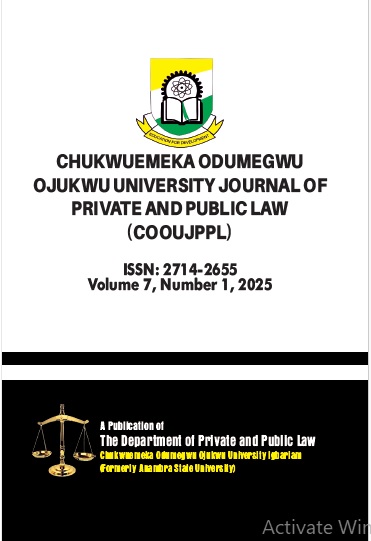INTERROGATING THE PROSPECTS AND CHALLENGES OF TRADITIONAL ARBITRATION IN NIGERIA
Abstract
This research examines the persistence, challenges, and potential integration of traditional arbitration systems in Nigeria's contemporary legal framework. Despite colonial attempts to dismantle indigenous legal structures, traditional dispute resolution mechanisms continue to operate across Nigeria, maintaining relevance through cultural legitimacy and accessibility. The study employs doctrinal research with empirical investigation methodologies to evaluate the current status of traditional arbitration, analyze judicial attitudes towards indigenous dispute resolution mechanisms, and develop proposals for legislative reform. Through critical examination of statutory provisions, judicial precedents, and comparative legal approaches, the research identifies a significant enforcement gap that undermines traditional authorities' dispute resolution efforts. The findings reveal that despite recognition in landmark cases like Agu v. Ikewibe and Oru & Anor v. Amarabe, traditional arbitration decisions remain vulnerable due to absence of explicit statutory recognition. This paper proposes a comprehensive framework for integrating traditional adjudication into Nigeria's formal legal system through statutory codification, procedural standardization, and formalized enforcement mechanisms. By establishing multi-tiered dispute resolution pathways that leverage both traditional and formal mechanisms, Nigeria can enhance access to justice, reduce Court congestion, and preserve indigenous legal heritage. The research contributes to emerging scholarship on legal pluralism and indigenous justice systems by demonstrating how traditional arbitration can complement formal adjudication while addressing distinctive community needs. This integration represents not merely a practical enhancement of judicial efficiency but a reclamation of indigenous legal heritage and advancement of cultural sovereignty within Nigeria's postcolonial legal landscape.

